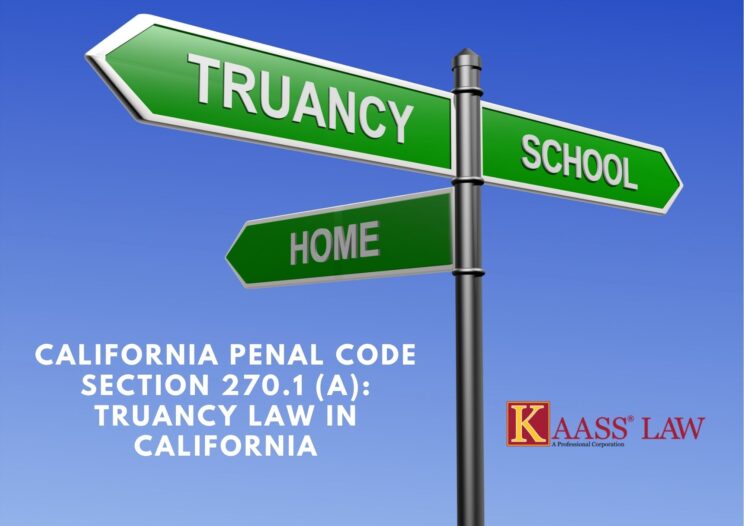PC 270.1 California
California Penal Code section 270.1 (PC 270.1) states, “A parent or guardian of a pupil of six years of age or more who is in kindergarten or any of grades 1 to 8, inclusive, and who is subject to compulsory full-time education or compulsory continuation education, whose child is a chronic truant as defined in Section 48263.6 of the Education Code, who has failed to reasonably supervise and encourage the pupil’s school attendance, and who has been offered language accessible support services to address the pupil’s truancy, is guilty of a misdemeanor.”
Is It a Crime to Let My Child Skip School?
Under some circumstances, parents can indeed face criminal charges if their child repeatedly does not attend school. For truancies to be a crime, you must meet 4 requirements:
- The child is at least 6 years old and in a grade between 1-8
- The child is a full-time student or continuing student
- The parent/guardian failed to reasonably supervise the child’s attendance
- A “chronic truant” is a child with unexcused absences for at least 10% of the school year.
What Are The Consequences Of Being Charged Under PC 270.1?
While a violation of California Penal Code 270.1 is considered a misdemeanor, the consequences can be much more serious.
First. Having a criminal record, even for a minor offense, can make it difficult to obtain or renew licenses. This is especially true if you work with children or in the medical or educational fields.
Second. A conviction can affect family relationships, especially if the couple is in the midst of a divorce or custody dispute. The court may view a lack of school supervision as a sign of inadequate parental responsibility.
Third. Custodial authorities may monitor you for repeated violations or refusal to cooperate with educational authorities. This may result in temporary restrictions on your parental rights.
What Are the Punishments for Violating PC 270.1?
PC 270.1 is a misdemeanor crime in California, and can earn you:
- Up to 1 year in a county jail
- A maximum fine of $2,000
How Can I Defend Against Wrongful Accusations of Letting My Child Skip School?
Truancies-related crimes have many elements, allowing for multiple possible defenses against a PC 270.1 violation. Some of these include:
- You reasonably supervised your child’s attendance
- Your child was not a chronic truant
- Your child was not within the required age or grade range
It is only a crime for your child to be repeatedly absent from school if you did not reasonably supervise your child’s attendance. If a parent took reasonable steps to ensure their child attended school, they cannot face charges for violating PC 270.1.
Example: A mother drives her 8th-grade son to and from school every single day. Her child frequently waits for his mother to drive off, and then skips school, only to return to be picked up. The child also makes sure to pick up any phone call from the school that notifies his mother of his truancies.
In this example, the mother would not be in violation of the law because she took reasonable steps to make sure her son attended school (driving him to and from school). She was only unable to monitor his attendance because she was not receiving any notifications about his absences.
It may have also been the case that your child was not actually a “chronic truant.” This means that they must miss at least 10% of school days in a year. Beware, this doesn’t mean a full year must pass, since a student can reach 10% of days absent much earlier. However, if someone faces charges for just one or a few absences, they do not violate PC 270.1.
Lastly, only children in grades 1-8 who are at least 6 years old can qualify for violating the law. It may be the case that your child was not yet 6 years old when the absences occurred, or that they were absent in high school. Either way, they must fall within the age and grade ranges.
If authorities charge you under California Penal Code 270.1 for your child’s truancy, KAASS LAW can offer expert legal defense.


Pingback:Can a Parent be Prosecuted for their Child's Lack of Attendance in School? - KAASS LAW